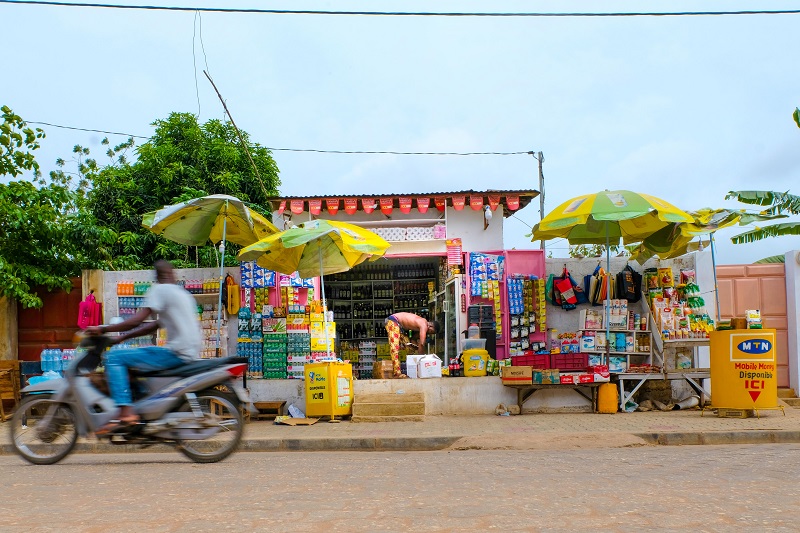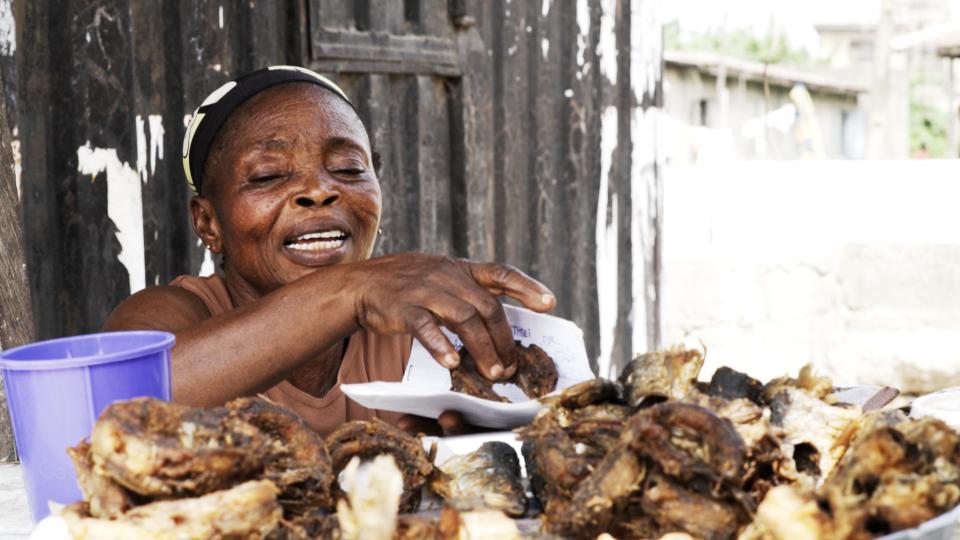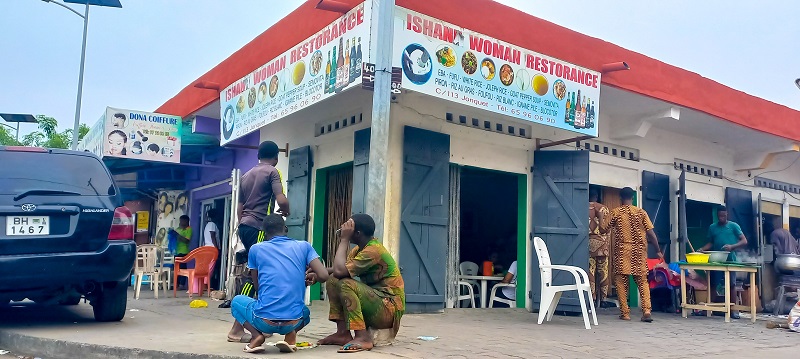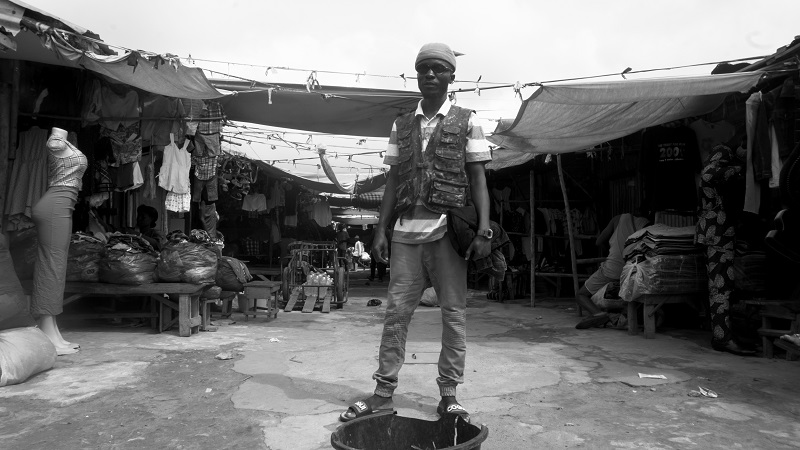MIGRANTS' DIARY
In this section, we narrate the lived experience of migrants in Lagos and Cotonou, exploring their reasons for migration, how they navigate their everyday lives in their new destinations in terms of forging relationship and economic opportunities and their future plans.
Maria, Female, 45, Married, Food seller
Togo to Lagos
Maria is a trader from Togo. She came to Nigeria 3 years ago in search of an adventure.
On reasons for migration and location stayed in the city: I got to Nigeria 3 years ago because I decided to go on an adventure. I stayed in Lagos, at first then moved to Oyo state before coming back to Lagos.
On Jobs and other Opportunities since Migration: I sell both Nigerian and Togolese food.
On relationship and experiences in the city: I came for an adventure and it has been adventurous.
Mobilities: I often travel back home, I do that every year at times every 6 months or even every 3 months.
Kabir, Male, 37, Married, Trader
Niger Republic to Lagos
Kabir Oumar is a 37-year-old migrant in Lagos. He is from Niger Republic. He came to Nigeria at the age of 23 years old.
On reasons for migration and location stayed in the city: I came to Nigeria in 2008 at the age of 23 years. I left Niger to Nigeria for money. I have lived in Isale-Eko in Lagos since then.
On Jobs and other Opportunities since Migration: I started with kaya-kaya (helping people to carry their goods and luggages) and today I have my own little shop where I sell provisions. I have been able to own an apartment in Niger Republic too.
On relationship and experiences in the city: I am here with my wife and children and the experience has been okay.
Mobilities: I used to go to Niger every year or once in every two years.
Funsho, Female, Married, Trader
Nigeria to Cotonou
Fasila is from Saki town in Oyo State, Nigeria. She has been in Cotonou for over 34 years.
On reasons for migration and location stayed in the city: I have been in Cotonou for over 34 years. I migrated to this city when I followed my parents who came here to look for greener pasture. I wasn’t born here but they brought me to Cotonou from Saki Oyo State Nigeria right from my childhood in 1988.
On Jobs and other Opportunities since Migration: I have been a food seller for so long and I now own a land here.
On relationship and experiences in the city: I am married to a man from Benin Republic, and we have 4 children (2 girls and 2 boys) Akanmu, Ayinde, Arike and Ashabi, they are all staying with us at this current location.
Mobilities: I do travel to Nigeria 1-2 times in a year. And we go home whenever we have a family function, or the need arises. When our mummy was still alive, whenever we have a family function we do travel to Nigeria.
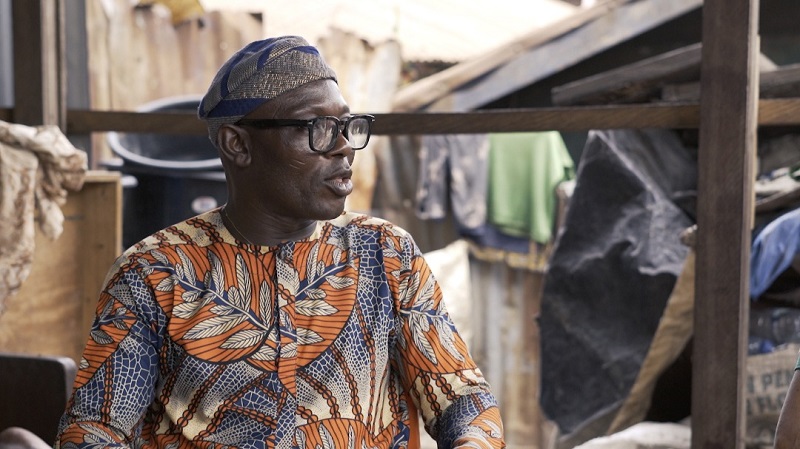
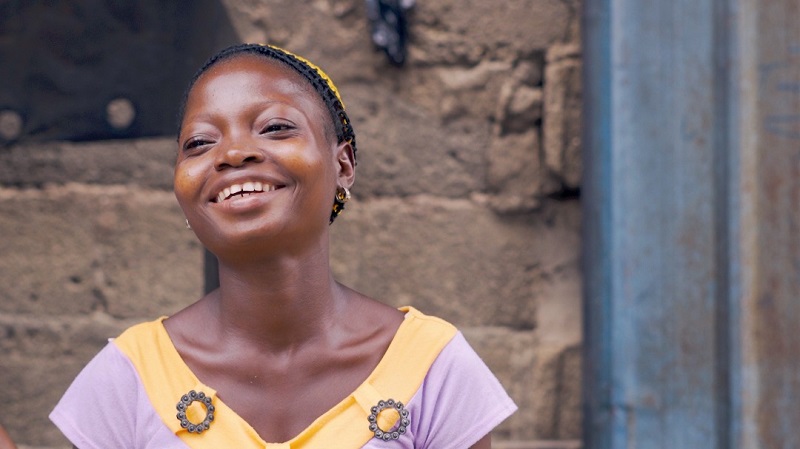
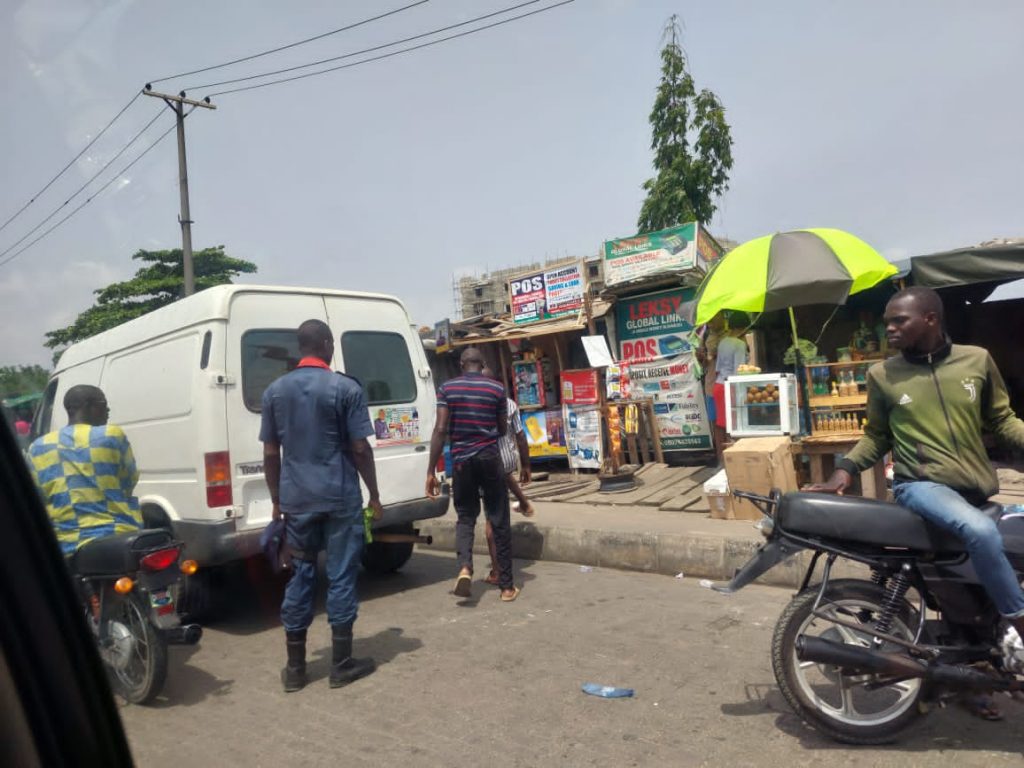
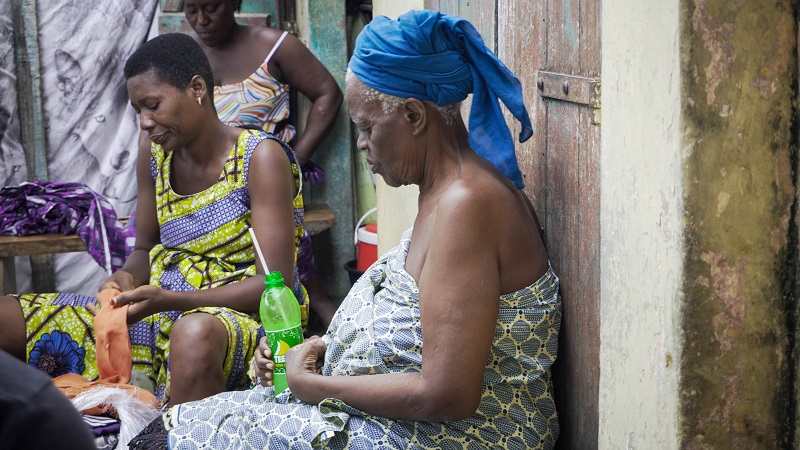
Ibrahim, Male, 38, Married, Loader
Niger Republic to Lagos
Ibrahim is a migrant from Niger Republic, he has been in Lagos for the past 10 years.
On reasons for migration and location stayed in the city: I was 28 years old when I travelled to Nigeria, that is 10 years ago to come and work. I stayed in Ijora then I went to Idunmota where I spent two years. From there I went to Balogun in Lagos Island, and lastly I moved to Isale-Eko also in Lagos Island, where I am currently spending my sixth year.
On Jobs and other Opportunities since Migration: I have been a loader since my arrival in Lagos.
On relationship and experiences in the city: I am married, and I have children. They are living in Niger republic in the house built by my father.
Mobilities: I mostly travel to see my family every year, at most once every two years.
Gbenga, Male, Married, Trader
Nigeria to Cotonou
Gbenga is a migrant in Cotonou, Benin Republic. He is from Ede, Osun State in Nigeria. He has been in Cotonou for more than 20 years.
On reasons for migration and location stayed in the city: I came to Benin Republic since 1997. I left Nigeria to Benin Republic because the situation was not favourable due to unemployment, insecurity, too much of injustice, lawlessness, and other vices. I have been living in Cotonou since then.
On Jobs and other Opportunities since Migration: When I arrived here, I was selling children toys. But now, I have a business where I transact any form of currency exchanges and withdrawals. I have been able to build an apartment in Ede and Cotonou.
On relationship and experiences in the city: I have 3 wives. I came here with my first wife, who is also from Osun state. I married 2 other women here – a Nigerian and a Beninois. My 3 wives are staying with me, but my some of my children are schooling in Nigeria.
Mobilities: I do travel to Nigeria whenever the need arises, at most on a yearly basis, my mother and younger brothers are in Nigeria. I normally spend about 4 – 5 days there.
Francis, Male, 28, Married, Trader
Nigeria to Cotonou
Francis, a migrant from Owerri, Imo state Nigeria has been in Benin Republic for over 11 years.
On reasons for migration and location stayed in the city: I left Nigeria over 11 years ago, I was 17 years old when I came to Cotonou to work.
On Jobs and other Opportunities since Migration: I am a trader. I sell fairly-used clothes. I have been able to buy a land in Nigeria and I will soon buy a land here at Cotonou also.
On relationship and experiences in the city: I live here with my wife and two children, and it has been good.
Mobilities: I only travel back to Nigeria during festivals like Christmas, New year, and Easter.
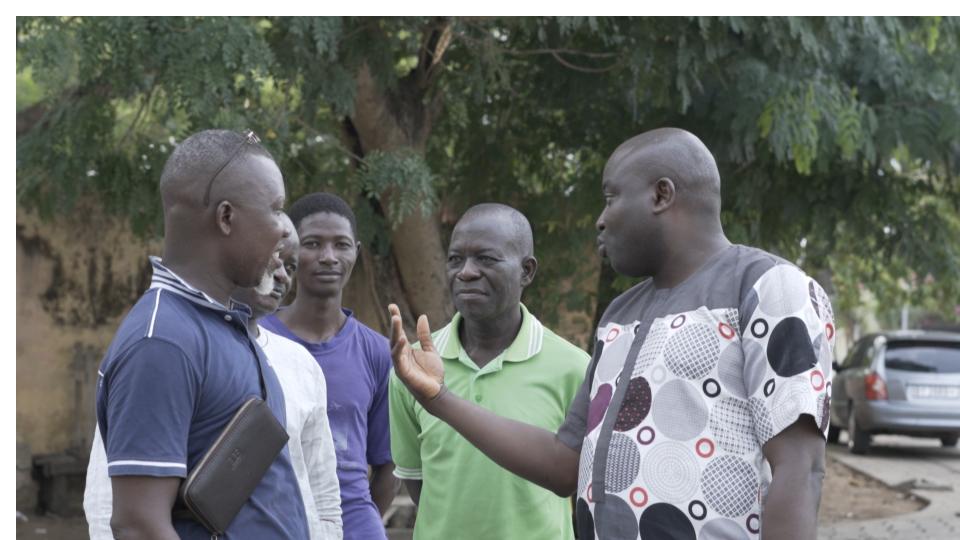
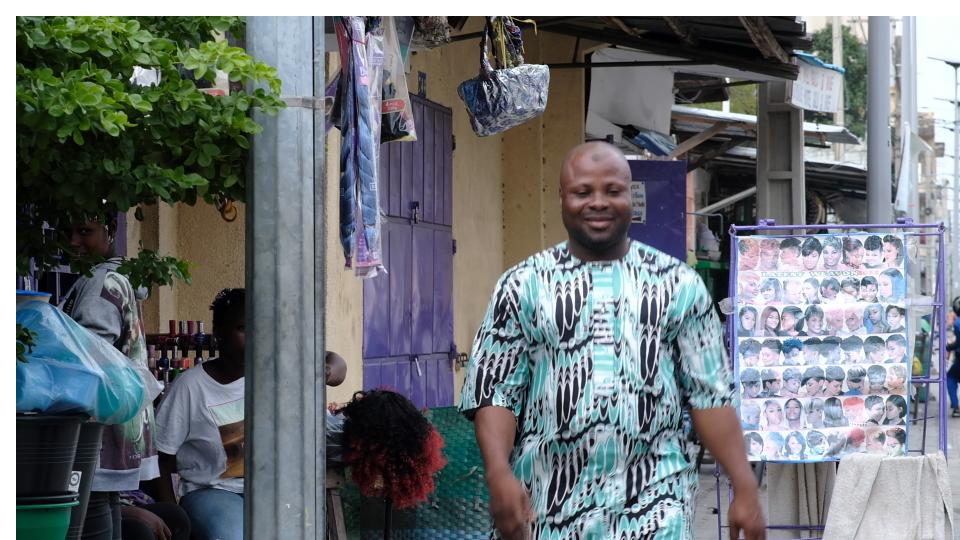
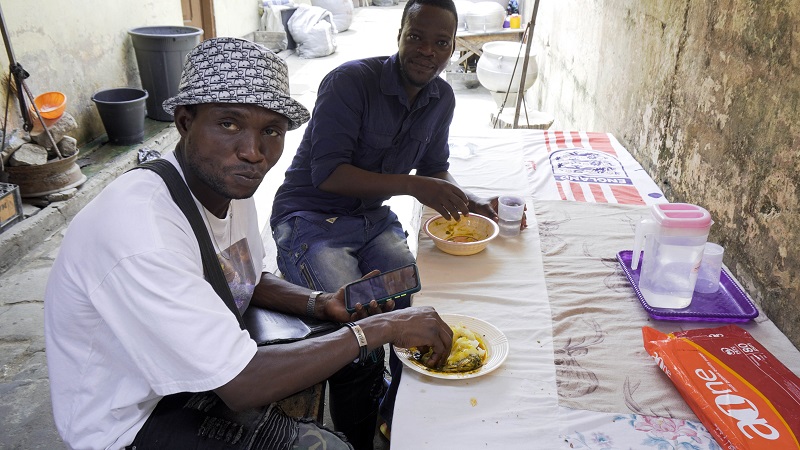
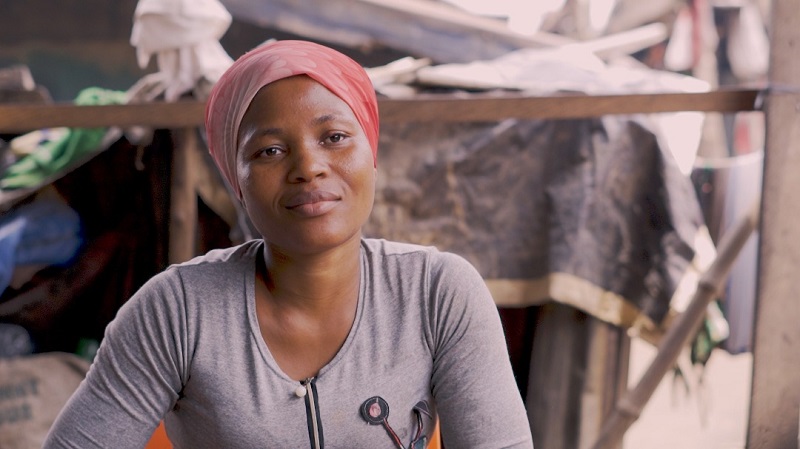
Mama Bonku (the name she is known with) is a migrant from Ghana who sells Bonku (Ghanaian delicacy) at Mile 2 Inter-country Park, Lagos, Nigera. She has been in Lagos for over 15 years.
On reasons for migration and location stayed in the city: I was selling Banku in Ghana until one day my husband brought the idea that we should move to Lagos. My husband just decided that we should come here and see if we can make money, so I came. We came around 15 years ago to Mile 2 with our 2 children.
On Jobs and other Opportunities since Migration: I was selling Banku in Ghana before I left so after we got to Mile 2, I got a shop in the park where I started selling my Banku.
On relationship and experiences in the city: I am not so sure about that because I try to be on my own or with people from my country. I don’t really make friends with Nigerians because I don’t want wahala. It is not that they are disturbing us or that I have had any bad experience with them, I just want to avoid any trouble.
Mobilities: My husband and children are here; we don’t travel often but we intend to go back to Ghana permanently after we have saved enough money to go back.
Glory, Female, aged 34, Married, Trader
Togo to Lagos
Glory is a migrant from Togo who has been in Lagos since she was 5 years old.
On reasons for migration and location stayed in the city: I left Togo when I was 5 years old with an agent. They brought me here to come and work as a housemaid so I can send money to my family. I started working with a family in Ikeja, Lagos. The family intended to adopt me when I was 8 years old but my mother was against it but they sent me to school and I finished primary 6.
On Jobs and other Opportunities since Migration: I worked as a housemaid for a family in Ikeja for 8 years before I was moved to another family in Ebute Metta where I worked for 5 years. I left there after I met my husband and I worked for someone selling food in Yaba for a while before I started selling Ewa Agoyin (a special Togolese delicacy) in Lagos Island. I have lived in Ikeja, Ebute-metta as housemaid. Now, my husband and I live in Ajah, Lagos State.
On relationship and experiences in the city: Sincerely, I have been very cautious since I came to this country. I try hard to be a trustworthy person I believe it is very easy for people to suspect me since I am a foreigner. Although, I have Nigerian friends and I relate well with my neighbours.
Mobilities: I still have parents and siblings in Ghana and I visit them often. My husband is from Benin Republic and we are planning on moving there soon when we have enough money.
Coulibaly, Male, Married, Security Officer
Mali to Cotonou
Coulibaly has been in Cotonou for 49 years. He has been migrating to several African countries in search of better life. He is originally from Mali.
On reasons for migration and location stayed in the city: My first migration was from Mali to Côte d’Ivoire in 1966, I was 16 years old. I left my country in the quest for a better life. Then I moved to Cotonou in 1973 and I was 23 years old then. I have gone to many countries like Côte d’Ivoire, Gabon (Libreville), Togo, Benin and Nigeria.
On Jobs and other Opportunities since Migration: I have been a farmer. But now I am a security officer with transportation company. I own a building in Mali, in my village.
On relationship and experiences in the city: I have two wives and four (4) children, two (2) boys and two (2) girls. One of my wife is a Togolese while the second one is a Nigerian. The Togolese wife lives in Togo but she is currently in Mali and the Nigerian one lives in Nigeria, Calabar precisely. My children are currently living with their mother.
Mobilities: Things are hard. So, I don’t travel like before. I used to travel every year or two years before. I will still retire back to my village in Mali.
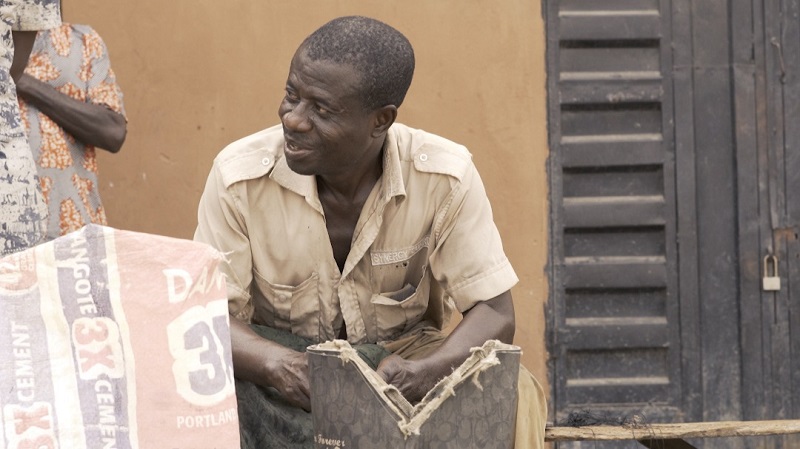
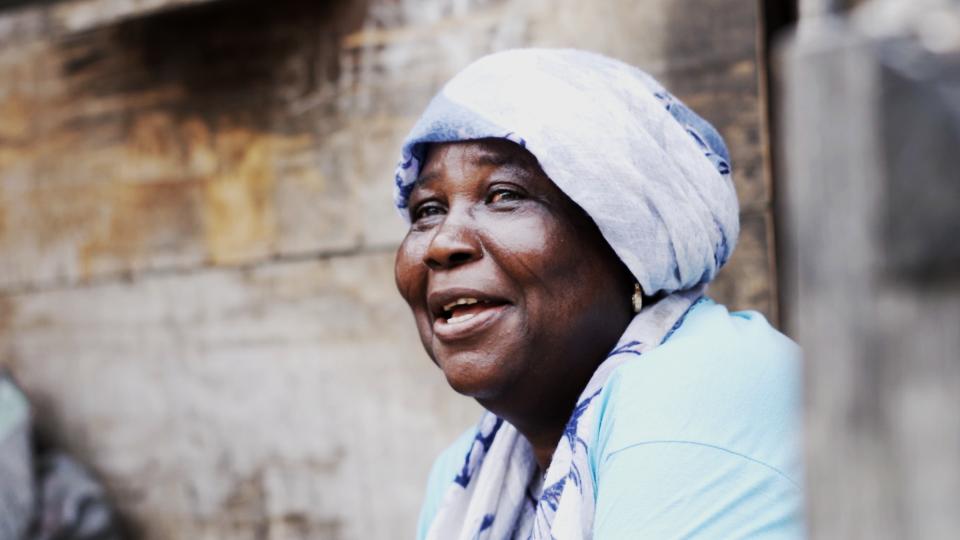
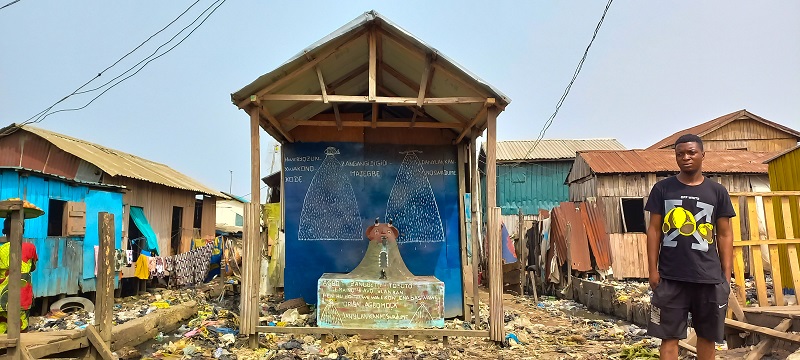
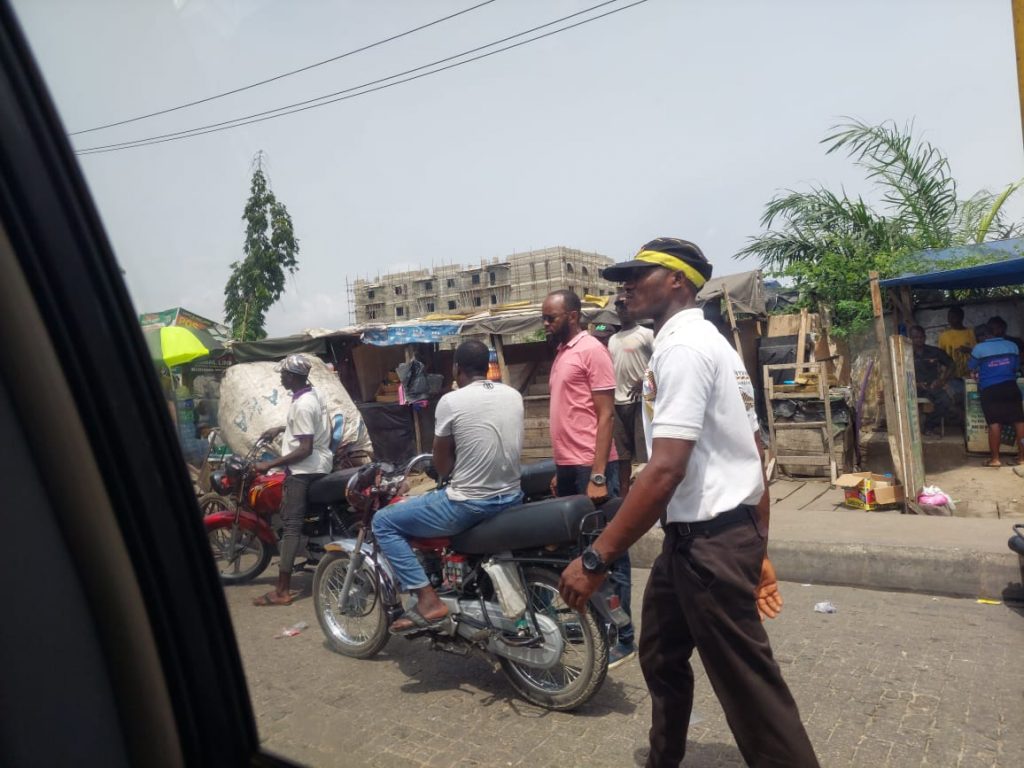
Ali, Male, 44, Married, Driver
Togo to Lagos
Ali is a migrant from Togo who has been in the driving business for the past 20 years in Lagos. He started the driving business when he was 24 years old (that was when he came to Lagos). He was initially learning to be a mechanic in Togo but stopped after one year in training. He changed to driving, after he was convinced by one of his brothers.
On reasons for migration and location stayed in the city: I was a mechanic, but I didn’t finish learning it. I spent only one year in training. My brother was already driving in Lagos and when he came to Togo, he told me to come here to overcome austerity and suffering. I have been doing the business for 20 years and I have driven to Ghana apart from Nigeria. I don’t live permanently in Lagos because my wife and children live in Togo.
On Jobs and other Opportunities since Migration: He has only been in the driving business.
On relationship and experiences in the city: I like Nigeria except the problems we face on the road and the crime rate in Nigeria is high. There was a day my phone was snatched around here. We were in traffic that day. Also, the police disturb us a lot. He explained that the pandemic period has affected the business. COVID and the border closure have caused increased problems. Before, when the border was opened, if you spent like 3 days you will have confidence but now to cross Nigerian border is wahala. We have to settle different officials. After we show our proper documentation, they still collect money from us.
Mobilities: He said he has no idea when he intends to retire. This driving work do not have retirement o. Alumu mentioned that it is possible for him to settle in Nigeria due to personal factors. My wife’s father is from Ogbomoso, here in Nigeira, but he has been based in Togo for a long time. He is in Ogbomoso now. Also, one of my daughters is schooling in OAU (Obafemi Awolowo University). She stays with my sister in Aguda. My sister sells beans there and she has been in Nigeria even before I was born. Even my daughter has said that after she finished her school and gets a good job, she will bring us here to Nigeria.
Ramatu Ariyo, Female, 65, Married, Retired
Benin Republic to Lagos
Raila Adeoti, a middle-aged woman from Benin Republic has been in Lagos since she was 18 years old. She was working in Benin Republic before she migrated to Lagos. I was selling food in Cotonou even at that young age because I believe that it is important for a girl or woman to work and not depend solely on anyone either her parents or husband. She is married to a Nigerian from Ijebu Ode, Ogun State.
On reasons for migration and location stayed in the city: I had aunties here in Nigeria then, it was one of them that brought me here. She was married to a policeman here, so she brought me here to continue my work. I was staying with her at the Police Barracks with her husband. I stayed at Idi-Araba with that my aunty but she has moved to Abuja with her husband now. We were selling Tuwo and rice at Ojuelegba under bridge. I left Idi–Araba after I met my husband. We stayed in Ijebu for few months with my mother-in-law. My husband and I moved to Police Barracks in Iyana Ipaja. I discovered that living in the Barracks will not make one prosper, so, I told my husband that we should go and rent another apartment. But God answered our prayers, he was able to build his house in Agbara. I am not there because he offended me and I left to let the issue subside and also for my health. So, I came to stay with my sister here at Mazamaza.
On Jobs and other Opportunities since Migration: She has been in the food business even before she came to Lagos. I continued selling food when I got here
On relationship and experiences in the city: She mentioned how she met her husband in Lagos. I met him while I was selling at Ojuelegba, he just ended his police training after 6 months. I was dating a Hausa man then, he was the DPO. Until I met him, I got pregnant for him and I didn’t see him, I decided to go and check him in the office. When that DPO found out I was pregnant for his junior, he locked him up for 2 weeks claiming he stole his wife. I begged him to release my husband. She also learnt to speak Yoruba fluently to aid proper communication with her husband, his family and in the city. I couldn’t speak Yoruba before. My husband and I spoke pidgin to each other then, but I learnt it and I can speak fluently like after a year of my marriage. Also, she talked on her experience at the border when travelling to Benin Republic. When I came to Nigeria at first, it was easy to enter the country. There was no problem at all. Now, you have to be extremely prepared. The bus drivers take us through bushes to avoid border officials or if you have enough money, you will just give the officials. I take a bus from here to Seme border to enter Benin.
Mobilities: I had 7 children with my husband. My children all went to school, my first son became a sergeant in the police force until he died. I will still go back to my husband when the issue is resolved, and I am well rested. I don’t intend to go back to Cotonou permanently because all my properties are here. And if police arrest me, it is another police that will pay for my bail.
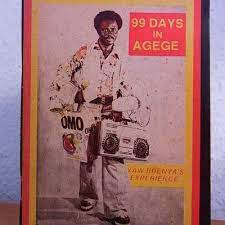
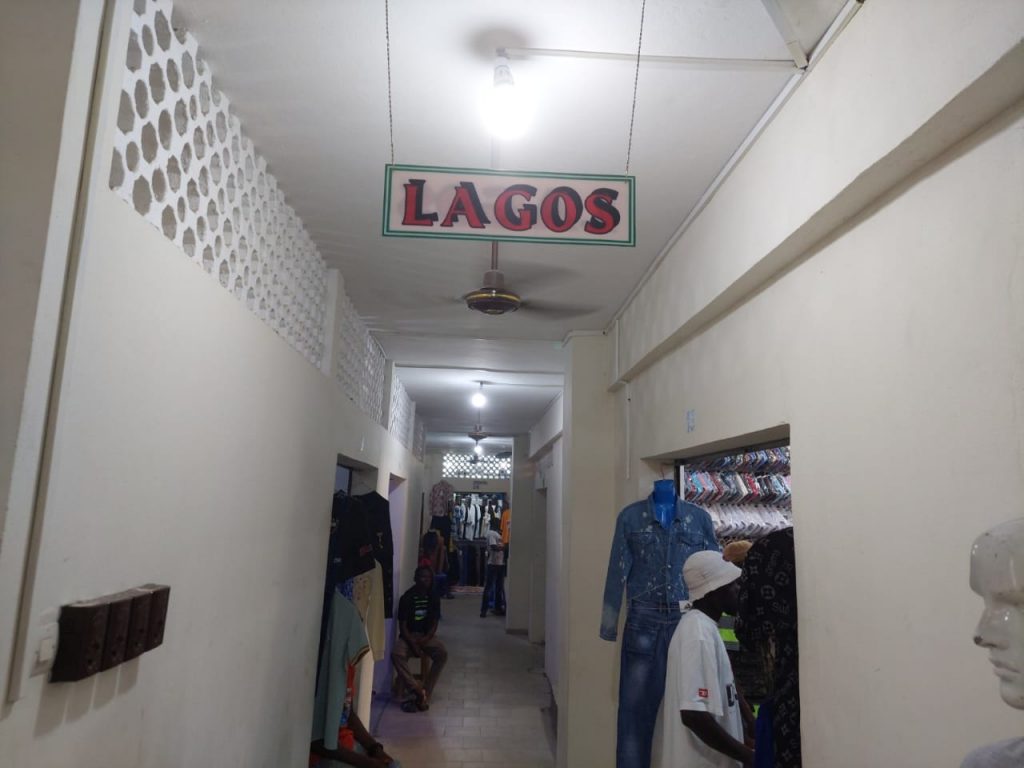
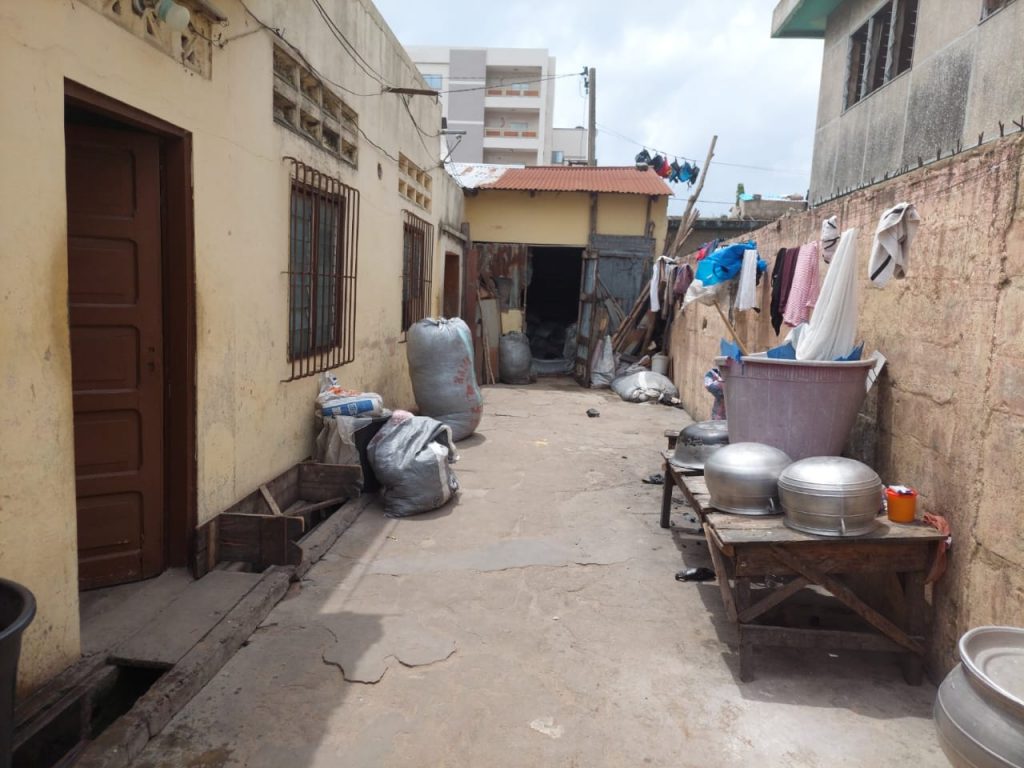
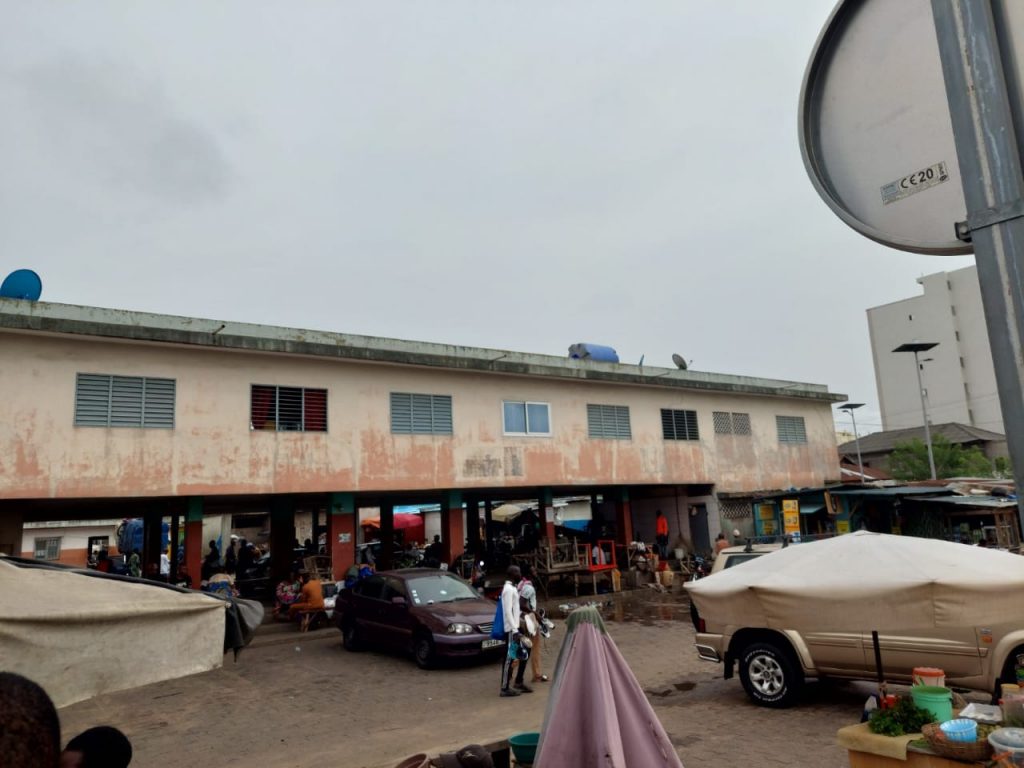
Baba Fali, Male, 66, Married, Lottery Operator
Ghana to Lagos
Baba Fali is a migrant from Ghana who has been in Lagos, Nigeria since the 1980s. I came to Nigeria first of all around the 1980s but I returned back to Ghana during the Ghana must go clash but I came back in 1990.
On reasons for migration and location stayed in the city: I came because things were better here (Nigeria). And there was a book called “99 days in Agege” and I happen to read it although I have not been to secondary school or university. The author of the book narrated how he was a teacher in Nigeria and how he taught in 5 different schools. He was also a lesson teacher to some students at home after school hours. I was motivated because of the economic benefit the guy brought to Ghana. So, I decided to come to Lagos to hustle. When I came in the 80s, I stayed in Maroko for 4 to 5 years before I moved to Ajah. The second time I came to Lagos, I settled in a hotel at Oke-Arin, Lagos Island in 1990 for 4 months, then I moved to a place under the bridge called Ishara in Lagos-Island for a while until I was able to afford to rent an apartment at Iga-Idunganran Street, Lagos Island,
On Jobs and other Opportunities since Migration: While I was living in Maroko, I worked as a mason. When I came back the second time, I continued the job as a mason for about 7 years. I worked in a private company called Mokland. We worked on Iju Grammar School in Oshodi and some other ones like conversion of Ibadan Cocoa House’s parking space into a bank. I quit the job after I had an accident on the site. I am now a lotto operator. Presently, I have built a house in Ghana. I bought a land, and I am already building a house in Ghana. I started building towards the end of President Ya’dua’s regime.
On relationship and experiences in the city: I am close to the Nigerians I live and work with, my children have Nigerian names and I enjoy some of the food. Although, the environment I found myself, they find it difficult to understand my culture. During those days at Ishara, we used to hold meetings and parties and the Nigerians will come and watch us. But they didn’t really value it because they don’t ask questions about it or show that they want to learn more. Like me, whenever I watch Eyo festival, I ask questions, I want to know why they do or forbid some things.
Mobilities: I live here with my wife and 3 kids. My plan is to go back to Ghana in the near future when I am able to get my targeted money. I will make another plan when I get to Ghana.
Abdullah, Male, Married, Meat Seller
Nigeria to Cotonou
Abdullah is from Sokoto state, Nigeria. He has been living in Cotonou, Benin Republic for the past 40 years.
On reasons for migration and location stayed in the city: I have been in this country for the past 40 years. I left Sokoto to Cotonou because of money. I have been living in Cotonou since then.
On Jobs and other Opportunities since Migration: I sell suya (roasted meat) at Jonquet park, although I was into farming when I was in Nigeria but I decided to go into this business because it is more profitable. I have also been able to build a house in Sokoto.
On relationship and experiences in the city: I am married with children but my family is in Sokoto. They used to come here and spend 2-3 months with me.
Mobilities: I go to Sokoto every year and I used to spend 3-4 months there whenever I go home
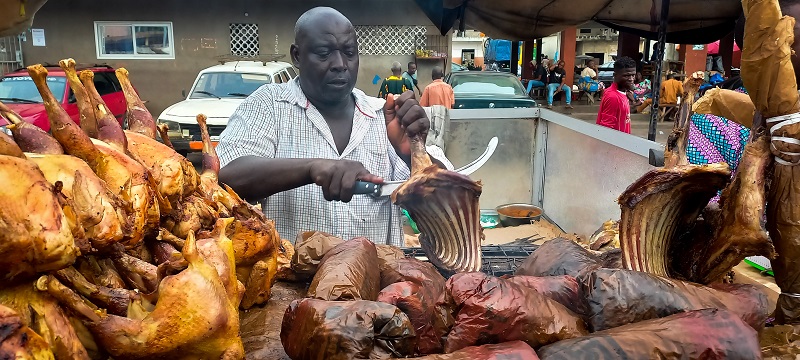
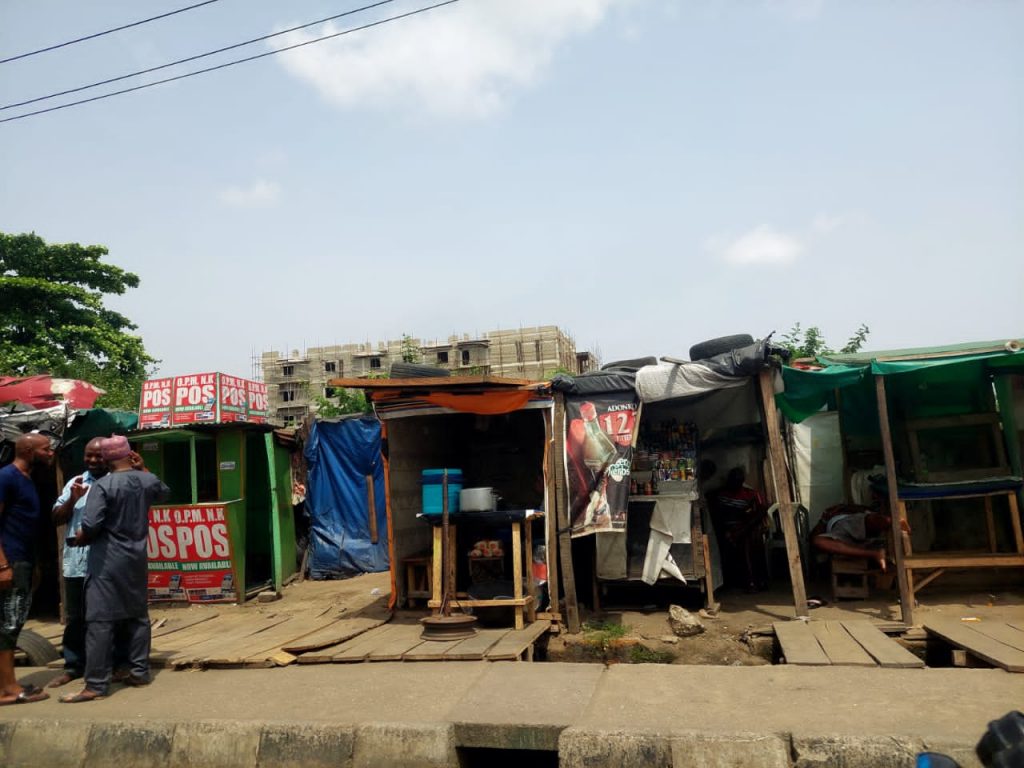
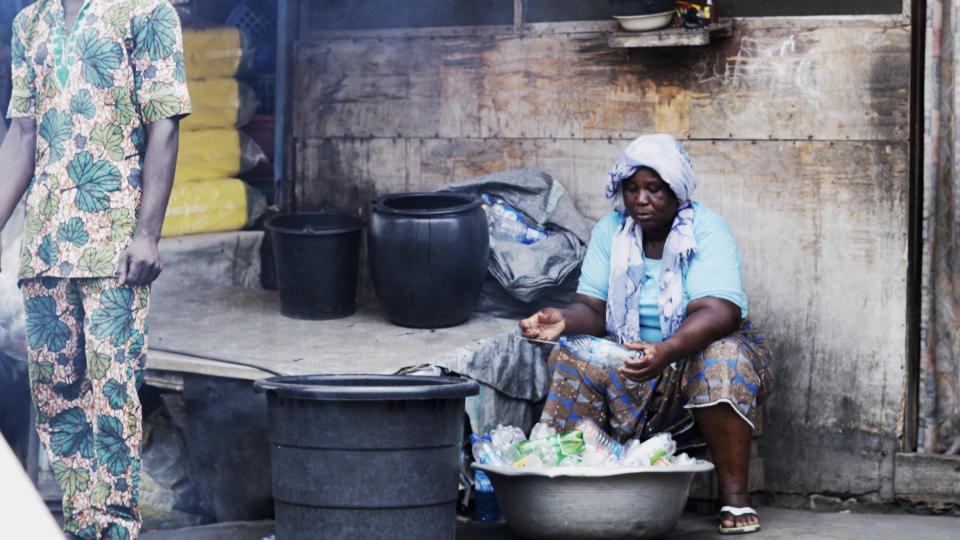
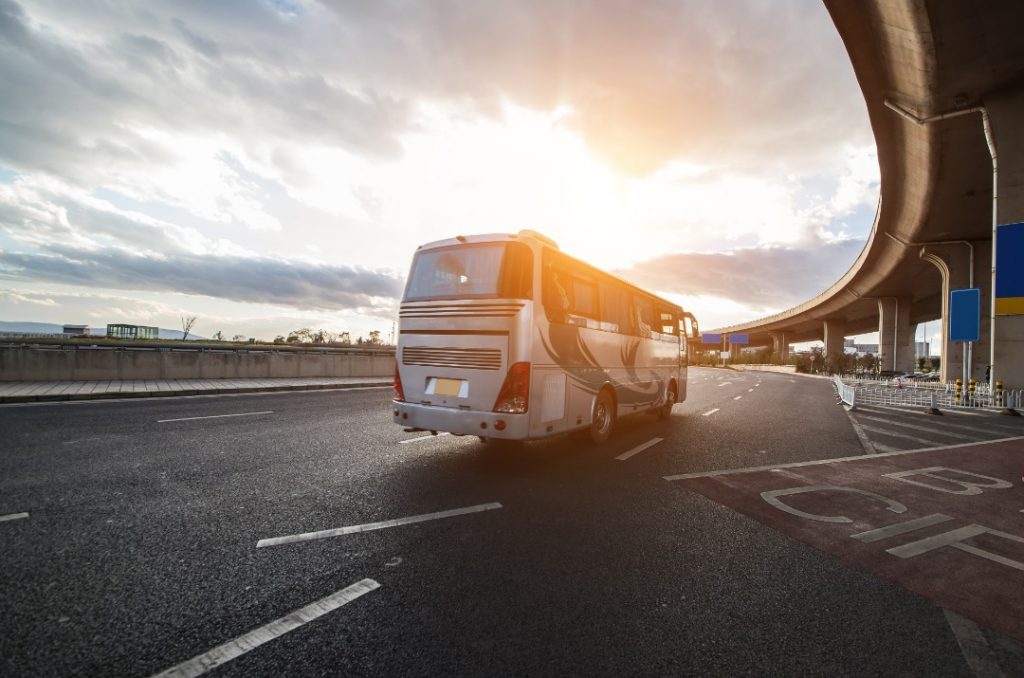
Kofi, Male, Married, Driver
Togo to Lagos
Kofi is a migrant from Togo who has been in the driving business for the past 25 years in Lagos. He was initially a mechanic in Togo but he changed to driving. I was a mechanic in Togo until I started driving. I changed to driving because of the lack of spaces to do the mechanic job in Togo. If you are on a person’s land, the person might decide to come and develop the land then you will start from square one again looking for space.
On reasons for migration and location stayed in the city: I started driving from Lome to other countries in the last 25 years. If I get passengers, I go to Ivory Coast, Mali or Conakry as well not just Lagos, but travel to Nigeria is the most frequent. I don’t live in Lagos permanently; my family is still in Togo. My stay in Lagos depends on availability of passengers. I can say I come on Fridays if there is no passenger. But anytime, any moment I see passenger I go back. Whenever, I am in Nigeria, I stay with my friend who lives in Alaba International Market area.
On Jobs and other Opportunities since Migration: I have always been a driver for 25 years. I have a house in Lome and another one in my village in Togo.
On relationship and experiences in the city: We are all friends here in this park. When I came, I explained to them that I want to stay in this park, and they took me in as a brother. Although, whenever I am travelling back to Togo, I don’t buy anything from Nigeria. I prefer to buy from Benin Republic because it is cheaper. I buy rice, bread, garri (which is different from Nigeria own). Our soft drink (in Lome) is even of better quality than the one in Nigeria. I don’t like Nigerian food. I just manage eba. The border situation is another bad experience. The border officials are very wicked, entering Nigeria is very cumbersome. But there is no problem with other countries. We enter through main border in Lome and Ghana but in Nigeria, we pass bush, and we still pay different people to pass bush.
Mobilities: If the opportunity comes today, I will stop the driving business and go back to Togo to continue farming. I pay people to manage my farm for me now. I grow corn, groundnut, and cassava.
Ramatu Ariyo, Female, 65, Married, Retired
Benin Republic to Lagos
Raila Adeoti, a middle-aged woman from Benin Republic has been in Lagos since she was 18 years old. She was working in Benin Republic before she migrated to Lagos. I was selling food in Cotonou even at that young age because I believe that it is important for a girl or woman to work and not depend solely on anyone either her parents or husband. She is married to a Nigerian from Ijebu Ode, Ogun State.
On reasons for migration and location stayed in the city: I had aunties here in Nigeria then, it was one of them that brought me here. She was married to a policeman here, so she brought me here to continue my work. I was staying with her at the Police Barracks with her husband. I stayed at Idi-Araba with that my aunty but she has moved to Abuja with her husband now. We were selling Tuwo and rice at Ojuelegba under bridge. I left Idi–Araba after I met my husband. We stayed in Ijebu for few months with my mother-in-law. My husband and I moved to Police Barracks in Iyana Ipaja. I discovered that living in the Barracks will not make one prosper, so, I told my husband that we should go and rent another apartment. But God answered our prayers, he was able to build his house in Agbara. I am not there because he offended me and I left to let the issue subside and also for my health. So, I came to stay with my sister here at Mazamaza.
On Jobs and other Opportunities since Migration: She has been in the food business even before she came to Lagos. I continued selling food when I got here
On relationship and experiences in the city: She mentioned how she met her husband in Lagos. I met him while I was selling at Ojuelegba, he just ended his police training after 6 months. I was dating a Hausa man then, he was the DPO. Until I met him, I got pregnant for him and I didn’t see him, I decided to go and check him in the office. When that DPO found out I was pregnant for his junior, he locked him up for 2 weeks claiming he stole his wife. I begged him to release my husband. She also learnt to speak Yoruba fluently to aid proper communication with her husband, his family and in the city. I couldn’t speak Yoruba before. My husband and I spoke pidgin to each other then, but I learnt it and I can speak fluently like after a year of my marriage. Also, she talked on her experience at the border when travelling to Benin Republic. When I came to Nigeria at first, it was easy to enter the country. There was no problem at all. Now, you have to be extremely prepared. The bus drivers take us through bushes to avoid border officials or if you have enough money, you will just give the officials. I take a bus from here to Seme border to enter Benin.
Mobilities: I had 7 children with my husband. My children all went to school, my first son became a sergeant in the police force until he died. I will still go back to my husband when the issue is resolved, and I am well rested. I don’t intend to go back to Cotonou permanently because all my properties are here. And if police arrest me, it is another police that will pay for my bail.
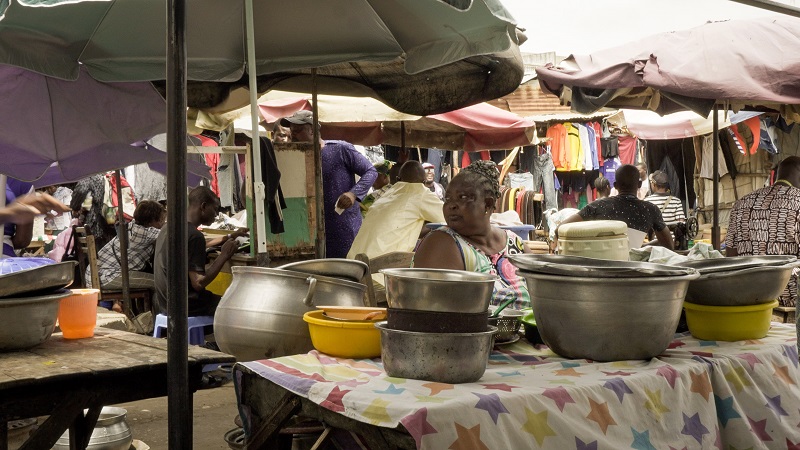
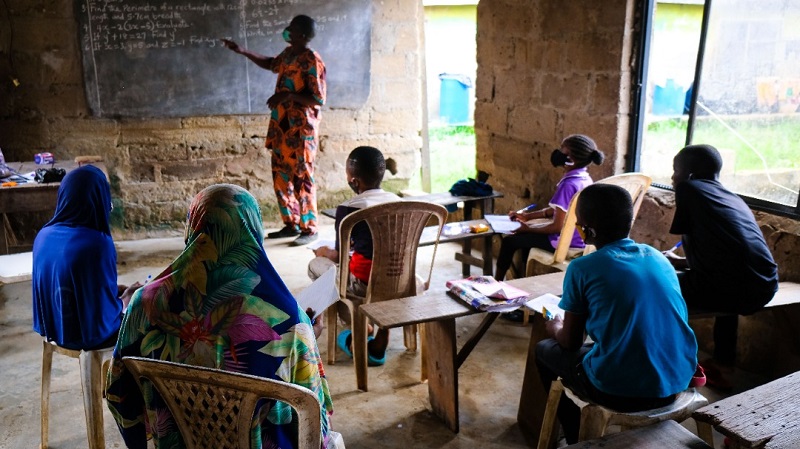
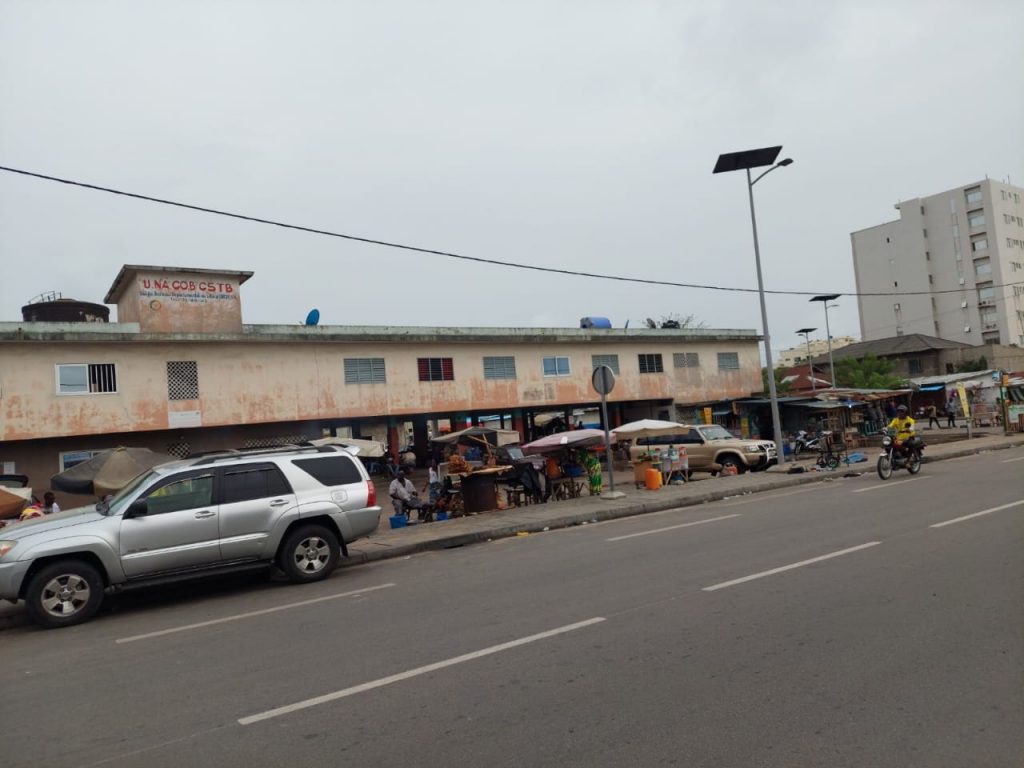
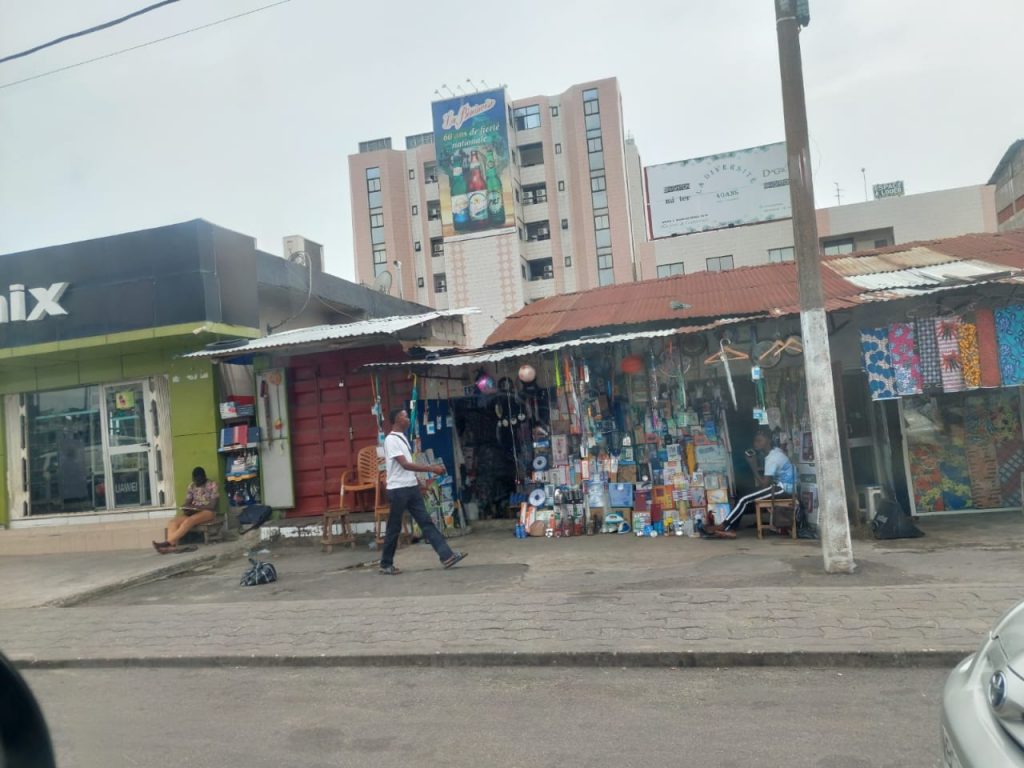
Iya Ibadan, Female, Married, Trader
Nigeria to Cotonou
Iya Ibadan is from Ibadan, Oyo State, Nigeria. She came to Cotonou six months ago.
On reasons for migration and location stayed in the city: I came to Cotonou for business purpose. There is nowhere somebody cannot do business. I just followed my destiny.
On Jobs and other Opportunities since Migration: I sell food, only Nigerian food.
On relationship and experiences in the city: I have been doing my business. My husband and children are in Nigeria, Ibadan precisely.
Mama Akbar, Female, 41, Divorcee, Fura Seller
Cotonou to Lagos
Mama Akbar is from Benin Republic and has been in Nigeria for more than 20 years. she came to Nigeria as a single woman.
On reasons for migration and location stayed in the city: Her major reason for coming to Nigeria was economic purposes. I followed someone from Benin Republic. She told me to come and work here with her. She was selling Tuwo (a delicacy made from corn). I stayed in Ijora Badia, Lagos, with other people from Benin Republic. We just packed ourselves in one place. I got married in Ijora Badia. I came to Mazamaza around 4 years ago after I got separated from my husband. A friend of mine brought me here.
On Jobs and other Opportunities since Migration: She was initially helping to sell Tuwo until she left Ijora Badia. I sell Fura (local food made from millet) now in Mazamaza.
On relationship and experiences in the city: I got married to a Nigerian, he is from Kano state. So, I can say I have roots in Nigeria. After I got separated from my husband, my children moved to Kano to live with their grandparents. Also, she mentioned her experience with border officials whenever she is travelling back to Benin Republic, crossing the border is difficult now. The officials dey worry us and they also demand payment, but I don’t have choice because I still have family there.
Mobilities: I intend to go back to Benin Republic but I want to save some money first so I can go and start business there.
Rihan, Female, Married, Trader
Ghana to Lagos
Rihan has been in Lagos for almost 20 years. She is originally from Ghana. She was selling cooked food in Ghana before she migrated to Lagos. She is married to a Nigerian from Jigawa state.
On reasons for migration and location stayed in the city: I was married before coming to Lagos but my husband left me before I came to Nigeria. I had two children with him. My children are in Ghana and are schooling there with their father’s family. My mother-in-law had issues with me, so my husband had no choice but to divorce me. So, I became depressed afterwards until one of my aunties in Nigeria asked me to come here, that I will meet someone better than him. A week after I got to Nigeria, I wanted to go back to Ghana but my aunt encouraged me to stay. I stayed at Apapa with my aunty, for a while until another aunt of mine told me to come to Mazamaza, and I met my husband.
On Jobs and other Opportunities since Migration: I am into trading business now. I buy clothes here and I sell them in Ghana and I also buy some other things from Ghana to sell here. But I sold food for like 5 years after I came to Nigeria.
On relationship and experiences in the city: I like the Nigerian lace material because Ghanaian likes it very well and I sell a lot whenever I buy it. But there is one problem I have about Nigeria, there is no light compared to Ghana. Before coming here, I was so beautiful but now my complexion has changed because of heat. On the food, I like Tuwo and Semo. I hate Nigerian rice. Her business and the COVID experience. To conduct my business now, I send money to the people I know in Ghana to buy the goods I need, then they send it through vehicle to Nigeria. I collect the goods at Mile 2 Park and if I want to send goods there as well, I send them through the Mile 2 Park, after paying the drivers some money. Sometimes, if I want to go to Ghana, I go through water transportation. It is not easy o. We pay huge amount to different people and at the end we don’t make profit again.
Mobilities: Since my husband is here. I plan to stay in Nigeria and continue my trading business. Hopefully, expand sales to other African countries. I just pray the border issues are resolved soon.
